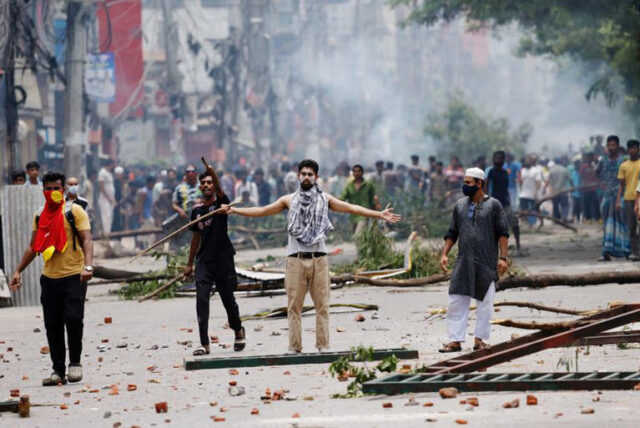By Feroze Mahbub Kamal
This Movement is Truly Remarkable
Hello! Salute to the brave student society of Bangladesh! They have made history with this movement. I was on the streets of Dhaka during the 1969 anti-dictator Ayub movement and witnessed the 1990s mass movement against dictator Ershad. But today’s student society has taken the anti-government movement to unprecedented heights, intensity, and breadth. Never before have such large numbers of students, including school students, been seen on the streets, demonstrating a new level of political awareness. This will be a historical milestone and a future inspiration.
Beyond Quota Reform: The Real Cause
Is this extraordinary movement solely about job quota reform? No, it goes beyond that. It is a rebellion against Prime Minister Hasina’s brutal and conscienceless regime. Her crimes include extrajudicial killings, the Shapla Chattar massacre, rampant corruption, vote rigging, war against Islam, and subservience to India. Public outrage has been simmering for a long time, waiting to explode. The Dhaka High Court’s ruling to uphold the reserved quota acted as the trigger. This is how wrongdoers often create their own downfall.
What Should the Opposition Parties Do?
The question is, can the opposition parties and the people capitalize on the unprecedented movement sparked by the students? Just as ripe crops must be harvested promptly, movements must also be swiftly brought to fruition, or they risk losing momentum. Unfortunately, the failure of the BNP, Jamaat-e-Islami, Hifazat-e-Islam, and other opposition parties is evident. If the Awami League were in opposition now, they would have already toppled the government before the movement reached such a high level. The Awami League’s participation in the anti-Ershad movement in 1990 led to Ershad’s fall before the movement intensified.
Despite the massive student turnout, the opposition parties seem hesitant to join the streets. They likely still fear Hasina and the consequences of imprisonment if she remains in power. Consequently, they appear to be waiting to see the direction of the movement from the safety of their homes. The BNP might be hoping that the military will place Tarek Zia in power, as they did with Ziaur Rahman, and are therefore avoiding direct involvement. However, if the BNP, Jamaat-e-Islami, and Hifazat-e-Islam united, every police station and district in Bangladesh could have already been liberated from Hasina’s control. Their failure to act is apparent to everyone.
Overcoming the Fear of Hasina
The opposition parties’ major failure over the past 20 years has been their inability to build successful movements, remaining silent and inactive. Their fear of Hasina and India is so strong that they are reluctant to take to the streets, even when presented with a strong student-led movement. This is reminiscent of a caged tiger that no longer desires freedom. The leaders worry that if the movement fails, they will be in danger. Freedom and democracy cannot be protected by such cowardice. The opposition parties may be hoping the students will secure their victory, but movements do not yield results this way.
The Need for a Coordinated Effort
The main issue with the BNP is that they have never won power through movement, not even Ziaur Rahman, who was installed by military forces. The Jamaat-e-Islami and Hifazat-e-Islam lack experience in leading successful movements and can only muster party-specific events. They cannot mobilize the general populace on a large scale, posing a risk of failure for the current movement. Hasina will attempt to cling to power by any means necessary. To succeed, the BNP, Jamaat-e-Islami, and Hifazat-e-Islam must quickly join the movement without trying to hijack it for party interests.
The Urgent Call to Action
How long can this movement survive? How many days can the students sustain their efforts against the combined forces of the military, BGB, police, RAB, Chhatra League, Awami gangsters, and Indian agents? The only path to success is for the opposition parties to unite swiftly and oust Hasina. Time is running out. If this movement fails, the responsibility will fall squarely on the opposition parties, and the public will never forgive them. Future calls for agitation will likely be ignored by the students. Additionally, if Hasina survives, she will emerge with new strategies, weapons, and foreign alliances, possibly even allowing Indian military bases in Bangladesh. The consequences of losing this movement would be unimaginable and dire.










